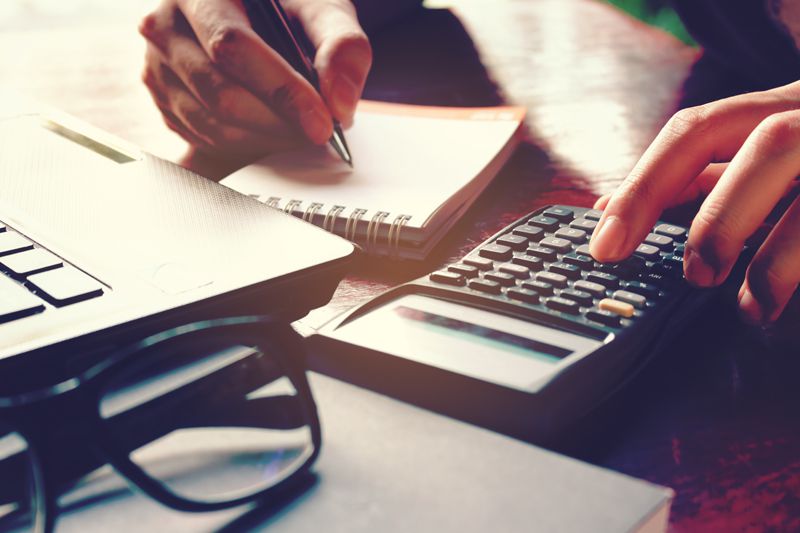

Credit Readiness Guide
Frequently Asked Questions About Credit
Credit is money you borrow to pay for things when you need them and then repay the money at a later, agreed-upon time. Credit can be used for big purchases like a house or car, or for smaller everyday items.
Credit-worthiness is your ability to pay back your creditors on time. When you make all of your payments on time you are building good credit. If you neglect payments or make them late it can affect your credit negatively and you may have a hard time borrowing money in the future.
Being responsible starts before you establish credit
There are some easy ways that you can prepare to establish credit before opening a credit card or applying for a loan. This begins with your banking habits.
If you can maintain a checking account in good standing and have a history of making regular deposits to your savings account, a financial institution may be more likely to establish credit for you. You should view your bank accounts as a first glimpse of your credit. If you make regular deposits and don’t overdraw your account you are seen as a better credit risk than someone who has no savings account and frequently overdraws their checking account.
How do you establish credit?
When you first want to establish credit there are a lot of options open to you.
Many students establish their first credit through opening a student loan for college. Student loans typically have low fixed interest rates and provide for a fixed payment over the life of the loan. Each month, you know exactly how much you need to pay and you do not need to worry about the interest rate fluctuating from month to month.
Some students choose to open a credit card; since it is their first credit card, it generally has a lower limit. Credit card interest rates can fluctuate and are generally between 15% and 25%. The payments change every month based on the balance and the minimum payment each month usually covers the interest that accrued on the account but not much of the principal.
Another option that some people choose is to open a loan or line of credit, such as overdraft protection or a personal loan, with their financial institution. A financial institution will often approve a loan for someone with no credit history if they have a history of responsible banking activity and an established savings account. Some financial institutions will also approve a loan or line of credit for someone with no credit history if they have a cosigner.
What’s a cosigner?
A cosigner is someone who agrees to be on a loan with you. The loan belongs to you; however, if you don’t pay the loan back, it becomes the cosigner’s responsibility to pay. Sometimes having a cosigner can help someone with no credit history or negative credit history receive a loan that they wouldn’t normally receive or receive a better interest rate than they would have on their own.
How do interest rates work?
There are two types of interest rates; fixed and variable. A fixed interest rate is set at the outset of a loan and then is maintained over the life of the loan. A variable interest rate can change on a regular basis; this can make significant changes in the monthly payment and the amount of money paid over the life of the loan.
What if I miss a payment?
Loans are generally due once a month. If you miss your payment you may be charged a late fee; this fee could be anywhere from $5 to $50.
Some financial institutions may give you a 15 day grace period for your loan before they charge you a late fee. If you don’t make a payment within 30 days of when the loan was due the missed payment can be reported to the credit agencies. The credit agencies show each time you were 30, 60, 90, 120, 150 and 180 days late with a payment. Each of these late payments is a strike against you and will bring down your credit score.
How do lenders know if I have good or bad credit?
With your permission, lenders or creditors will pull your credit report to review for creditworthiness to help in determining whether to give you a loan or credit.
Credit Reports
Each person has an individual credit report. Your credit report shows all of your credit history for seven to ten years. Mistakes you make as a young adult can easily affect your ability to obtain credit later in life. There are three credit reporting agencies; Experian, TransUnion and Equifax.
Your credit report shows each account that you have, such as credit cards, auto loans, mortgages, student loans and any other loans or lines of credit that you have. Your credit report also shows the amount of each payment that you have made on all of your reported accounts. It shows how many times you were late on payments and how late the payment was, 30 days, 60 days, 90 days, 120 days, 150 days, or 180 days.
Payments that are made on time show responsible money handling and will raise your credit score; payments that are made late or not at all will lower credit score.
Who else looks at my credit report?
Not just lenders look at your credit report. Your credit report gives a history about your responsibility.
Landlords may look at credit to decide whether to rent an apartment to you or not; if you don’t have good credit you may end up not getting the apartment or having to pay a larger deposit. Employers may also look at your credit report. If you take good care of your credit you are seen as a responsible person and may be more likely to get the job. Cell phone and other utility companies may use your credit report when deciding whether to establish an account for you.
Credit Score
The Fair Isaac Corporation developed the FICO credit score. The FICO credit score system uses numbers between 300 and 850 to determine each individual’s credit. Lenders can look at your credit score and know almost immediately whether you are a risk to lend to. Each late payment or time that you go over your credit limit on a credit card lowers your credit score; it can take years to recover from just a few credit mishaps.
Here is a list of what the different scores mean:
- Excellent: Over 750
- Very Good: 720 or more
- Acceptable: 660 to 720
- Uncertain: 620 to 660
- Risky: less than 620
What’s my credit score?
The formula used to calculate your FICO score includes information based on several factors:
- 35% on your payment history
- 30% on the amount you currently owe lenders
- 15% on the length of your credit history
- 10% on the number of new credit accounts you’ve opened or applied for (fewer is better)
- 10% on the mix of credit accounts you have (mortgages, credit cards, installment loans, etc.)
So how can I get a good score?
There are some easy ways to keep your score up:
Make your payments on time and in full, if possible pay more than the minimum due. Keep your balances on your credit cards to a minimum.
Don’t open several new accounts at one time (or close several accounts at one time). Have several different types of accounts (credit card, student loan, auto loan, personal loan, line of credit, or mortgage) instead of just credit cards.
When can I get credit?
You can start building credit on your own at 18. Until you are 18 years old, you cannot be legally responsible for repaying a loan.
How to responsibly use your credit
People hear about credit being a bad thing, but credit can actually be very useful.
- In an emergency when you wouldn’t have the cash otherwise.
- Credit can be more convenient than cash.
- Credit gives you the opportunity to buy something that would take years to save up for, like a car or a house.
You have to be careful though. Some people are very tempted when extended credit and they don’t carefully watch what they are buying. If you get a credit card and immediately charge right up to the limit you could be putting yourself in danger.
It’s best to know what you can afford:
- If you can’t pay off the balance in full at the end of the month, think about whether you really need the item. Even though you have the credit available doesn’t mean that you have to use it.
- Try and pay more than the minimum balance. The minimum balance usually only covers what you are being charged in interest and does not bring the principal balance down by much. That means next month you owe pretty much the same as you did last month even if you didn’t use your card.
I’ve heard of Identity Theft, what is it?
Identity Theft is when someone uses your personal information to use your accounts or establish new credit in your name. They will open accounts and use them up to the limit and then leave you with the responsibility of trying to clean up your credit. There are many ways that people can get your information to access credit. The big thing that most identity thieves are looking for is your social security number; they can do a lot of damage with just that information. It is important to keep this number to yourself and not openly share it with anyone.
Identity thieves look for your personal information anywhere they can. It may be as simple as your wallet being stolen or it could be part of a very involved scheme of selling hundreds or thousands of identities; your best defense is to be very careful about who you give that information to.
Just a few things to keep in mind
76% of undergraduate students have credit cards and the average credit card debt of undergraduate students is $2,200. Additionally, undergraduate students will amass nearly $30,000 in student debt on top of any credit card debt that they have accrued.
Just because you plan to graduate college and make $100,000 a year doesn’t mean that it is going to happen. Most recent college graduates make between $25,000 and $30,000 the first few years out of college. Once you take out taxes, health insurance and retirement savings this doesn’t leave you too much to pay rent, your cell phone bill, your car payment and insurance and any other expenses you may have. Owing credit card debt just adds to the financial burden that many recent college graduates have.
Other Unique Ways We Serve You.

Online & Mobile

Loans & Mortgages

